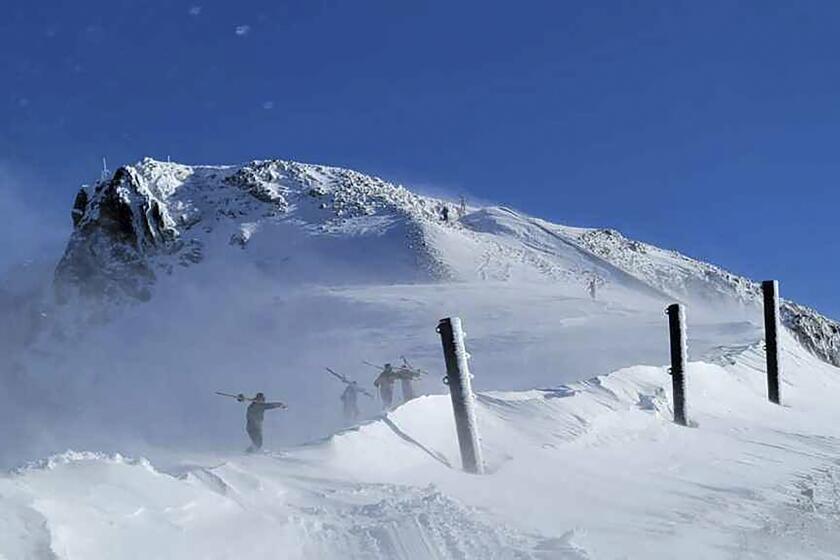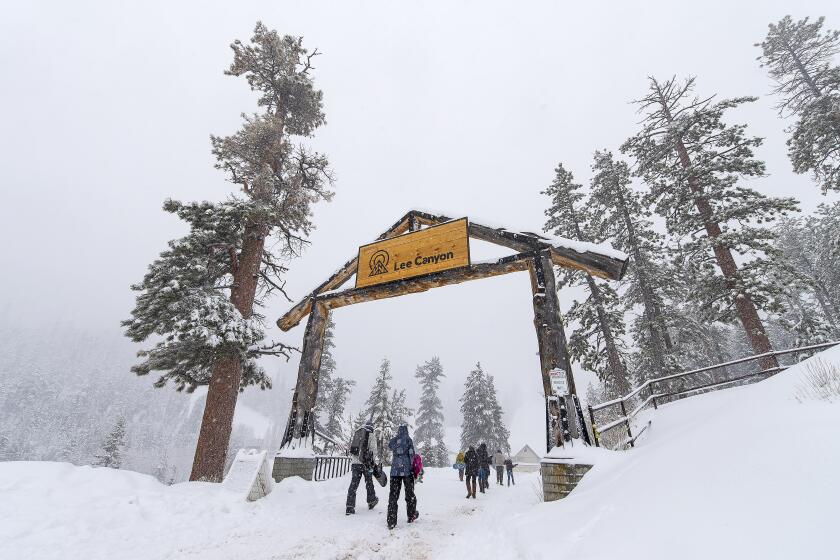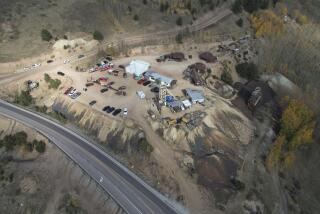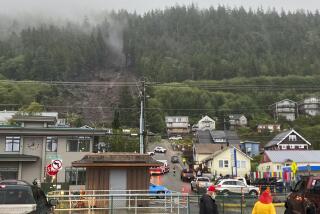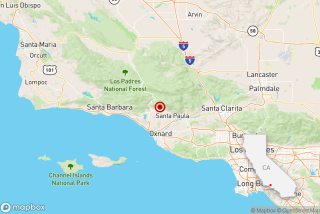‘Shivers-down-your-spine’ avalanche spawns 60-foot walls of snow on Mt. Shasta
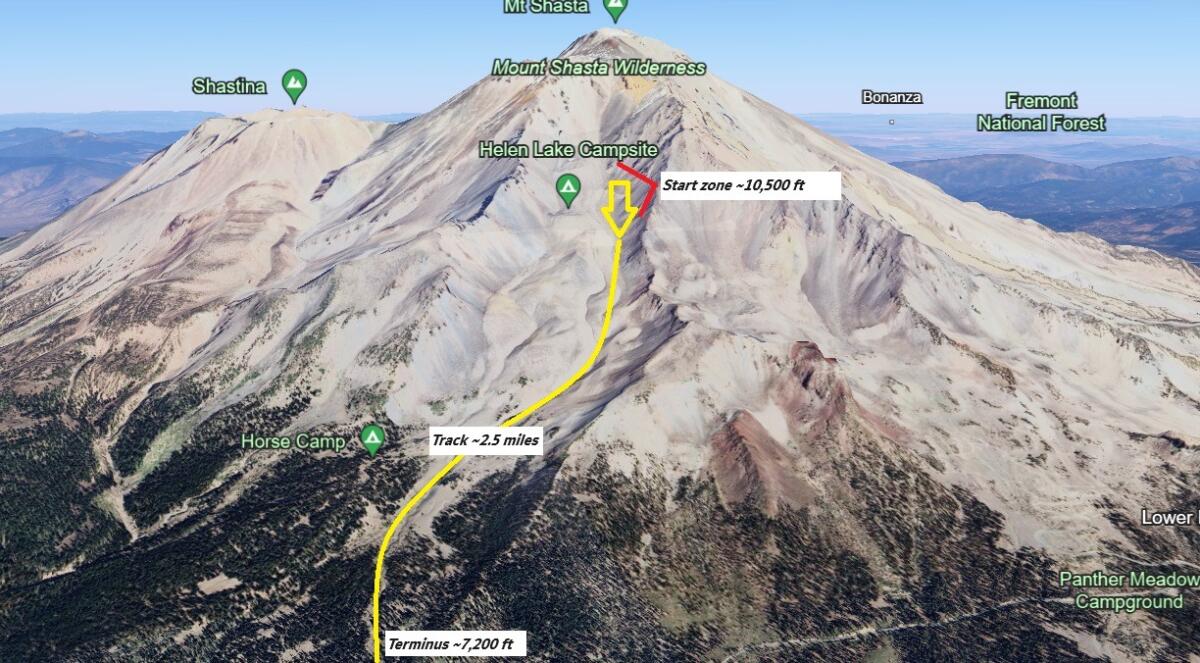
Visitors to Mt. Shasta are advised to be aware of the continued risk of avalanches in higher-elevation areas — just days after the peak was rocked by a slide so powerful it spawned 60-foot snow walls in its wake.
The avalanche, which one official characterized as a “shivers-down-your-spine” event, struck about 2 p.m. Monday during a days-long storm in the area.
Commencing at roughly 10,500 feet in elevation at Green Butte Ridge, the avalanche flowed 2.5 miles down a 3,200-foot vertical drop into the aptly named Avalanche Gulch.
The avalanche gained momentum and bulldozed through trees, “leaving large, scored features in its wake,” according to a report from the Mt. Shasta Avalanche Center. The vertical walls of the avalanche were more than 60 feet deep and included “large flowing debris.”
“The sheer volume of snow that is deposited in the runout zone is mind-boggling,” Nick Meyers, the center’s director, said in a statement. “This is a wonderful, fantastic, shivers-down-your-spine natural event.”
Reno resident Jason Parker was snowboarding at Palisades Tahoe when an avalanche buried him under feet of snow. The avalanche was triggered on the KT-22 peak, the first day that the lift was opened.
There were no injuries or damage to critical infrastructure, as the nearby Everitt Memorial Highway was closed during the storm.
“Naturally, we are glad nobody was caught in this whopper,” Meyers said.
The center warned winter visitors heading out Friday or Saturday morning that they could trigger an avalanche on the leeward aspects, or downwind-facing terrain, near the treeline, “especially in steep, exposed terrain.”
As the sun warms the area, snow will melt, loosen and possibly start to slide. Depending on the extent, such an event could potentially “knock you off your feet or machine, carrying you through hazardous terrain,” the center noted.
The center advised those in the area to be on alert and “watch for cracking” before traversing through avalanche terrain.
The same severe storm system that’s moving through California has caused an avalanche at a ski resort in southwestern Nevada, and “several people” are missing, according to Las Vegas police.
The avalanche was caused when a several-foot-deep storm slab, or crown, broke off around 10,500 to 11,000 feet in elevation.
Meyers said center forecasters initially believed the starting point was higher, at around 12,000 feet, but improved visibility in the following days led them to the lower estimate.
The avalanche came amid a significant storm system that ultimately dropped 2.5 to 3 feet of snow near Mt. Shasta’s treeline, “and likely more up higher,” according to data from the Old Ski Bowl weather station, which is located on the mountain’s south side at roughly 7,900 feet in elevation.
Snow levels plunged to 5,000 feet during the storm.
The avalanche was very similar to another that struck on Valentine’s Day in 2019, according to Meyers. That year, the resulting debris walls were 30 feet deep.
More to Read
Sign up for Essential California
The most important California stories and recommendations in your inbox every morning.
You may occasionally receive promotional content from the Los Angeles Times.
